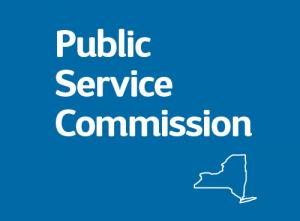New York Rejects Proposed Expansion of Customer Compensation Credits

The New York Public Service Commission has denied an individual customer’s request that it modify a recent ruling addressing compensation to be paid to customers participating in the distributed energy resource (DER) market.
The petitioner had asked the commission to expand the parameters for the so-called Market Transition Credit (MTC) payable to DER participants so that submetered tenants living in master-metered, multi-unit residential buildings would be eligible for such compensation. More particularly, the individual had urged the commission to extend the credits to submetered tenants in commercial buildings that had joined in community distributed generation (CDG) projects.
In declining to widen the standards for eligibility, the commission noted that it had established the MTC in the first place only as a temporary benefit available to “mass market” customers in an effort to ease the transition from net energy metering (NEM) as the sole form of compensation for power provided to the grid by DER customers for systemwide use. At the same time, though, the commission acknowledged that tenants in master-metered buildings — including condominium owners, cooperative apartment shareholders, assisted living facility residents, small business owners, and other submetered tenants — undoubtedly do face barriers in participating in evolving DER programs and markets.
With that in mind, the commission directed its staff to consider how to solve the practical and financial problems encountered by tenants of master-metered buildings as they seek to enter DER markets. Commission staff was tasked with filing a report that identifies such barriers as well as potential actions and remedies. The commission observed that, as a technical matter, master-metered buildings are utility-metered commercial accounts that are billed based on peak demand. As such, the commission explained, they do not fit the definition of mass market customers and therefore do not qualify to receive the MTC. To that end, the commission pointed out that submetered tenants are not actually utility customers at all. Consequently, they cannot fall within the category of mass market customers. Elaborating on the policy implications of expanded MTC eligibility, the commission reiterated that the purpose of the MTC was to provide DER users with compensation based on a value-based payment schedule pursuant to the “Value Stack” methodology the commission had recently approved in its high-profile and ongoing Reforming the Energy Vision (REV) proceeding.
The commission stated that it had determined that lower-consumption utility customers billed based on volumetric-only rates (i.e., mass market customers) could potentially see a significant decrease in the credit value under the Value Stack approach as compared to traditional NEM. Conversely, the commission said, customers billed under demand-based rates would be more likely to see their credit value remain the same or even increase under the Value Stack method as opposed to NEM. As a result, the commission had moved to provide some temporary relief via institution of the MTC.
Nevertheless, the commission stressed that it was not designed to go beyond mass market customers. Re Value of Distributed Energy Resources, Cases 15-E-0751, 15-E-0082, Oct. 24, 2017 (N.Y.P.S.C.).



